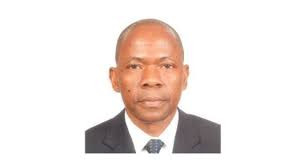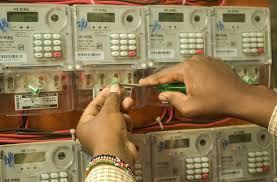
AUTHORITIES are going ahead with plans to de-dollarise the economy, with the Reserve Bank of Zimbabwe (RBZ) yesterday indicating that all provisions for the mono-currency system to be introduced in 2030 are in place.
RBZ deputy governor Innocent Matshe allayed fears over the de-dollarisation roadmap.
He revealed that the central bank no longer has outstanding foreign currency payment receipts, indicating that the monetary authorities have paid up US$60 million, which was outstanding from the auction system.
“I can assure you that over the last 12 months, the rate at which we accumulated these results has been nothing but something that I can say was outstanding,” Matshe said.
He was speaking during the Chamber of Mines of Zimbabwe 2025 State of the Mining Industry breakfast seminar in Harare yesterday.
“Why do I say that? Right now, we are standing at about a billion
[in US dollars],” he said.
“That’s something that we have been able to do in the past year.
- Council blames its woes on Zimdollar
- Council blames its woes on Zimdollar
- Mangudya: Zim’s de-dollarisation on course
- Re-dollarisation: Is this the right path forward for Zimbabwe?
Keep Reading
“What it tells you is that within the next three years, minimum, we will have the minimum import capital that we need.”
He applauded the mining sector for contributing to Zimbabwe’s foreign currency reserves.
“This country is generating a lot more foreign currency, that is really important,” Matshe said.
“Foreign currency or capital equipment or investment in mining will appear as if it’s a problem from the market side.
“But it’s not a problem from the market side. It’s a problem from external sources of capital.
“So in terms of, if you have funding and you need foreign currency, you will get foreign currency.
“So in terms of the anxieties around monocurrency, let me be as clear as I can be, that in most countries, they use their own local currency.”
Matshe said the transition towards a mono-currency regime started two years ago, adding that it was expected to be complete in 2030.
He, however, said the transition to monocurrency required stability, including low and stable inflation levels.
“There are global guidelines. There are standard and regional guidelines. Those are the guidelines that we follow in terms of the law, in terms of inflation,” he said.
“The second is adequate foreign currency reserves that will be able to cover at least three to six months of interest.”
Matshe said there was also need for increased demand for local currency to achieve mono-currency success, adding that it was critical that the country recalibrated the percentage of government obligations that were paid in local currency.
“We have been fortunate that our financial sector is in favour, and we continue to monitor activity in this sector to make sure that stability regains. Then, of course, we have two other critical elements,” he noted.
“The first are efficient and secure. I am glad to say that these detailed systems that we have in our market are very secure.
“However, we are on a programme to digitalise all of our systems. Most of them are very slow. They are manual. They are not open.
“And lastly, of course, we need fiscal and monetary political aid that we have seen over the last few months and this has enabled the stability that we go through right now.”
Matshe also revealed that RBZ was able to clear its outstanding invoices from the foreign currency market after collecting
enough resources for the forex market.
“Just this morning, I can tell you that we were able to clear all outstanding invoices from the invoices, which is something between US$10 million and US$60 million,” Matshe said.
“Now, this we’ve been doing consistently over the past year or so. So foreign currency is not a problem, so all anxieties around foreign currency should not be there.
“There is absolutely no reason for miners to worry about foreign currency.”










